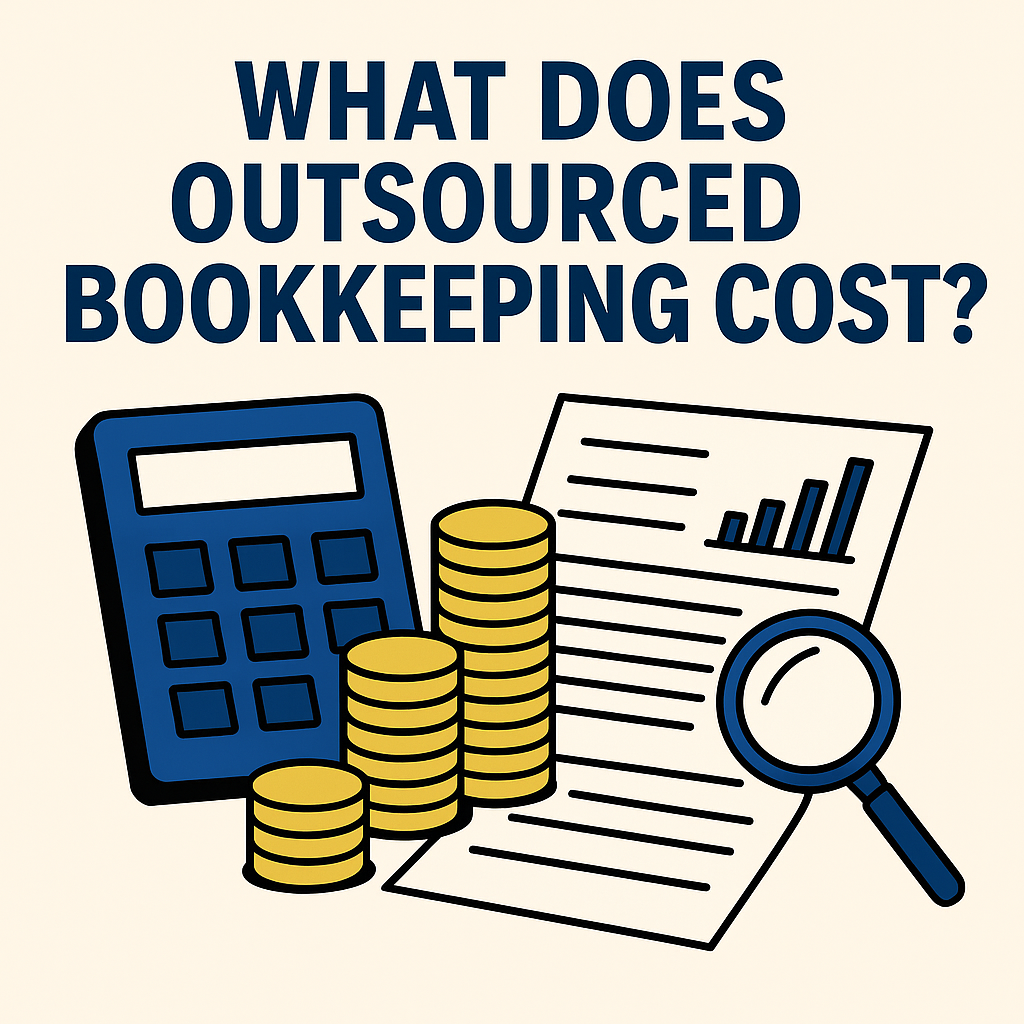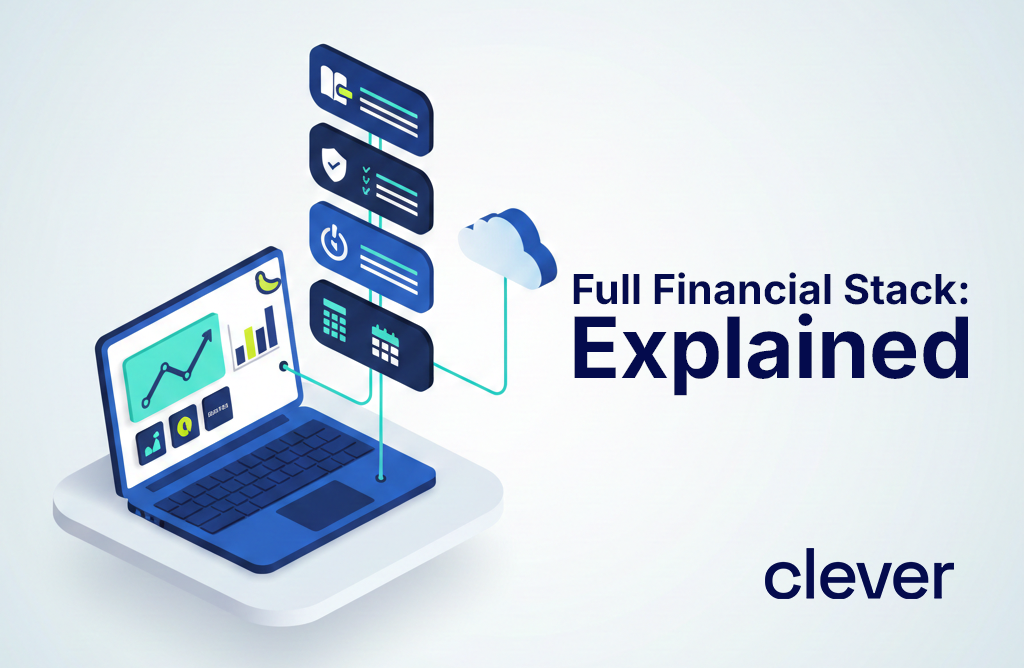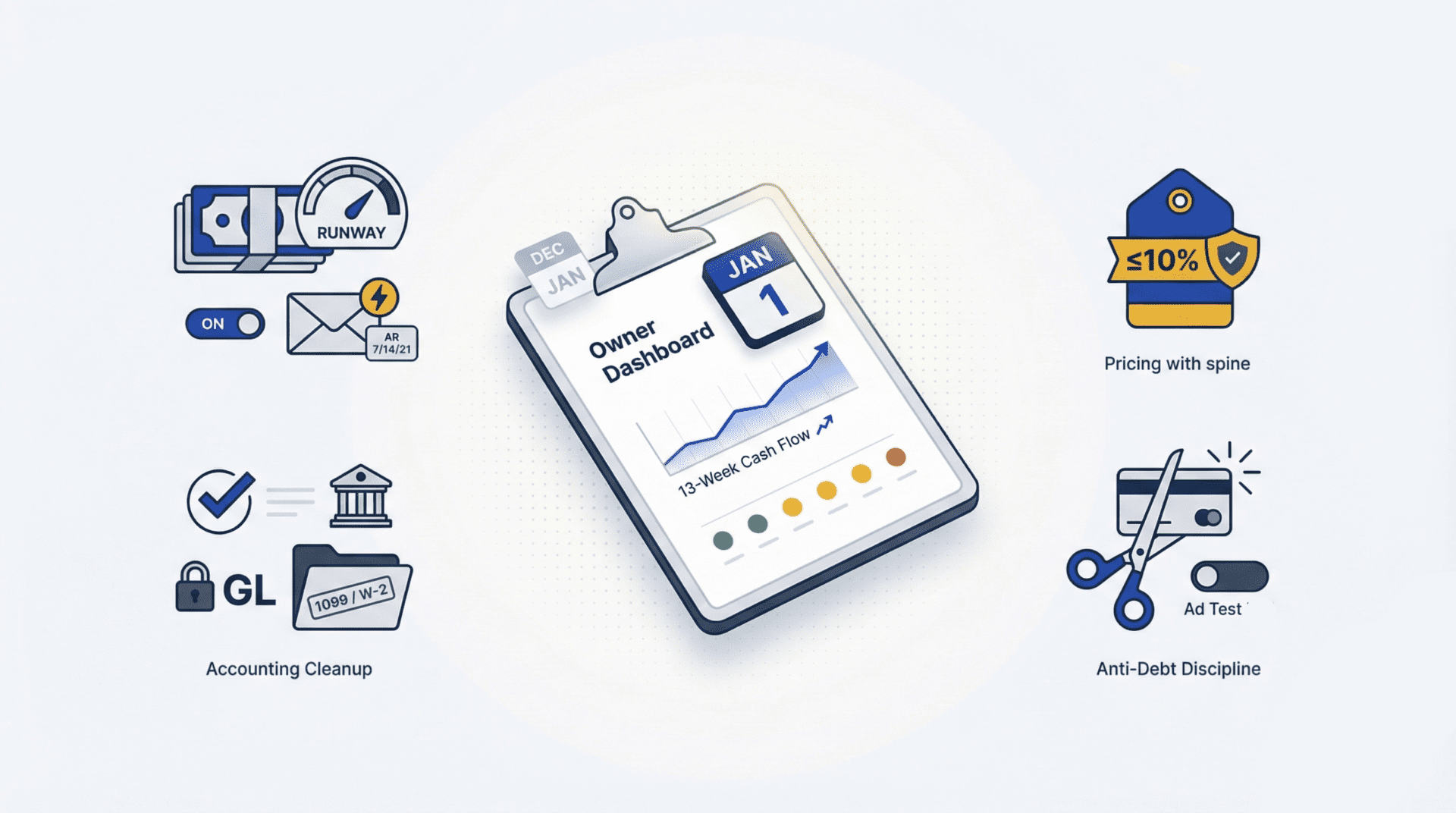
Outsourced bookkeeping means hiring an expert team to handle your financial records instead of managing it entirely in-house. This can save growing companies significant time and hassle. As CleverProfits notes, “clear and consistent bookkeeping forms the foundation of growth and financial health”. Below we break down why businesses outsource bookkeeping, how pricing typically works, and whether the investment pays off.
1. Why Outsource Bookkeeping?
- Save time and reduce burdens. Outsourcing bookkeeping frees founders and staff from manual data entry and administrative tasks. In-house bookkeeping can “eat up time, energy, and resources that are better spent elsewhere”. Outsourcing lets you “free up time to focus on the parts of your business that need you most, like growth”. This reallocated time can go to product development, sales, or marketing instead of payroll and receipts.
- Improve accuracy and audit readiness. Professional bookkeepers use standardized processes and software to minimize errors. They perform regular reconciliations and quality checks, ensuring accounts are “accurate and audit-ready”. This reduces the risk of mistakes, catches discrepancies early, and helps avoid late-filing penalties. By contrast, last-minute in-house bookkeeping can lead to missed deductions or incomplete records that trigger IRS fines.
- Scale easily with your growth. Outsourced bookkeeping is highly flexible. You’re not tied to a fixed salary or staffing model. As one industry guide explains, outsourced teams “scale with your needs… You scale services up or down based on what your business needs and only pay for the level of support you actually use.”. In practice, this means you can start with minimal hours each month and ramp up to full-service support as transactions grow, without bearing idle payroll costs.
2. Cost Models Explained
Pricing models. Bookkeeping providers commonly use several fee structures:
- Hourly billing: You pay per hour worked. This can range from roughly $20/hour for basic bookkeeping tasks up to higher rates for senior accountants.
- Fixed monthly fee: A flat retainer covers a defined scope (e.g. all bookkeeping tasks for one price per month). This gives budget predictability.
- Value or tiered pricing: Fees are tied to outcomes (like agreed deliverables) or offered in tiers/packages. For example, a firm may offer different monthly tiers (small business vs. mid-market) with set inclusions and prices, similar to CleverProfits’ packaged plans with onboarding and recurring fees.
Typical price ranges. Costs vary widely with business size and complexity. Many small businesses see outsourced bookkeeping fees from a few hundred to a few thousand dollars per month. For example, a financial firm notes outsourced packages often “range from $300 to $5,000 per month, depending on complexity, transaction volume, and services required”. FreshBooks reports average small-business plans around $500–$2,500 per month for basic bookkeeping. Generally, early-stage startups with simple needs pay toward the low end (often under $1,000/mo), while growing or mid-stage companies with more transactions or complexity pay higher.
What’s included. Typical bookkeeping packages include:
- Transaction entry and categorization: All bank, credit card, and expense transactions are automatically imported, sorted, and validated.
- Monthly reconciliation: Regularly comparing your books to bank/credit statements and correcting discrepancies to keep records audit-ready.
- Financial reports: Delivery of key statements each month (Profit & Loss, Balance Sheet, Cash Flow) on a set schedule.
- Support services: Ongoing support often includes coordination with your CPA (e.g. handing off year-end reports) and answering bookkeeping questions. Some firms also provide “monthly Loom reviews” or direct messaging support, as CleverProfits offers in its SimpleProfits package.
Providers may offer add-on services (discussed below) for extra fees. Always clarify exactly what tasks are covered. Basic plans generally cover core bookkeeping and reporting; payroll, tax preparation, or inventory tracking are often optional extras.
3. Factors That Drive Pricing
Several factors influence your bookkeeping fee:
- Transaction volume. The number of transactions (invoices, receipts, payments) is a primary driver. More transactions mean more data entry and reconciliation. As one analysis explains, businesses with high transaction volumes “can expect to pay more” because it takes more bookkeeping hours.
- Account and integration count. Each bank account, credit card, or sales platform you have adds reconciliation work. Multiple accounts or integrations (e.g. payment processors, merchant accounts) increase the bookkeeping scope, which typically raises the monthly cost.
- Business complexity. Companies with inventory, multiple revenue streams, or many 1099 contractors face more complex bookkeeping. Niche industries (construction, e-commerce, nonprofits) often require specialized reporting (like job-costing P&Ls or inventory accounting), which can push fees higher. In general, more complex accounting (e.g. inventory management, deferred revenue, cost-of-goods-sold) will increase costs.
- Add-on services. Beyond core bookkeeping, optional services like payroll processing, sales tax filings, or additional reporting drive up costs. For example, a firm might charge extra for handling payroll integration or 1099 preparation. These add-ons can be priced per payroll run or per employee, or as a flat extra monthly fee.
- Level of expertise and turnaround. Specialist expertise (such as a CPA, fractional CFO involvement, or industry certifications) can also affect pricing. Similarly, faster turnaround times or tighter deadlines may incur premium pricing.
By negotiating scope carefully – for example, deciding which tasks you can handle yourself and which you need fully managed – you can control costs.
It always pays to get detailed quotes from several providers, compare what’s included, and confirm no hidden fees. Bundling services (e.g. bookkeeping + payroll) or committing to a longer term may also reduce the rate.
4. Calculating Your Estimated Fees
Providers often base quotes on the factors above. A simple estimate formula might be:
Estimated fee = (Number of monthly transactions × cost per transaction) + base monthly fee.
For instance, a startup might use an outsourced bookkeeper who charges $1 per transaction plus a $300 base fee. If the business processes 500 transactions in a month, that could work out to $800 for the month. (Actual costs vary widely – some firms charge more per transaction and higher base fees.)
Then, add optional service fees if needed. Payroll processing might add $25–$100 per employee per month, and tax prep could be a fixed annual or monthly fee. For example, adding quarterly tax filing might tack on a few hundred dollars per year. Always clarify how these add-ons are priced.
Sample negotiation tips: When reviewing quotes, focus on exact services. Ask questions like: “Does this include monthly bank reconciliation? What reports are provided and when? Are payroll entries or sales tax filings included?” This ensures you pay only for what you need. You might negotiate to exclude low-value items or to get a bundled rate if you need multiple services. Providers will often customize a plan, so clear communication of your priorities (e.g. fast turnaround vs. lowest cost) can help tailor the price.
5. Is It Worth the Investment?
Yes – for many growing businesses, outsourced bookkeeping pays for itself. Think of the return-on-investment in two ways:
- Time and focus regained. As mentioned, outsourcing liberates entrepreneurs from bookkeeping drudgery. They can spend that time on client work, product development, or sales. CleverProfits notes that, as businesses expand, “outsourcing reduces errors and frees time for core activities”. Every hour the founder or manager saves on bookkeeping translates into hours invested in growing the business.
- Costly mistakes and missed opportunities avoided. A professional bookkeeping setup helps catch errors early and ensures compliance. One case study found that outsourcing bookkeeping and doing a catch-up reconciliation “avoided penalties, stayed on schedule, and got [the business] approved for a line of credit”. In other words, accurate books not only save money on fines, but they also build credibility for loans or investment. Consistent bookkeeping also produces timely financial reports, which help owners make smarter decisions (like spotting profitable products or controlling costs) instead of flying blind.
In practical terms, businesses often save dozens of hours per month. For example, a small startup client may reclaim 10–20 hours each month that were previously spent on data entry and corrections. That time can instead be used to acquire new clients or refine the product. Meanwhile, the bookkeeping cost (say a few hundred dollars monthly) is usually far less than what it would take to hire a full-time bookkeeper with salary and benefits. CleverProfits highlights that outsourcing lets you “tap into a team that’s already built for efficiency”, avoiding idle staff costs.
CleverProfits’ expertise: Firms like CleverProfits offer tailored outsourced accounting services for growing businesses. For instance, CleverProfits’ SimpleProfits package includes bookkeeping along with financial dashboards, performance benchmarking, direct support via Slack, and tax strategy/filing. This kind of integrated service means you not only get the core bookkeeping done, but also insights and tax help. Leveraging a provider’s expertise means your finances are handled by pros who know best practices, so you avoid many pitfalls.
In sum, the modest monthly expense of outsourced bookkeeping often returns multiplied value. You invest a little to save a lot of time and risk, and in turn get cleaner financials and clarity for growth. As one accounting guide puts it, the benefits of outsourcing – from “saving time and reducing overhead” to “staying compliant” – are “real and measurable”.
Conclusion: Outsourced bookkeeping is generally worth it for growing businesses. It comes with flexible pricing models and clear scalability. By understanding the pricing structure (hourly vs fixed vs tiered), the drivers of cost (transactions, complexity), and what services are included, you can budget accordingly. With the right provider like CleverProfits, you’ll gain professional bookkeeping, accurate reports, and the freedom to focus on growing your business.
The Clever Writing Team
The CleverProfits writing team includes various team members in Advisory, Financial Strategy, Tax, and Leadership. Our goal is to provide relevant and easy-to-understand financial content to help founders and business leaders reach their true potential.
TABLE OF CONTENTS
- accounting pricing, bookkeeping, bookkeeping audit readiness, bookkeeping cost calculator, bookkeeping cost estimate, bookkeeping cost factors, bookkeeping cost models, bookkeeping cost negotiation, bookkeeping fees, bookkeeping for scaling businesses, bookkeeping package pricing bookkeeping value proposition, bookkeeping pricing guide, bookkeeping ROI, bookkeeping scalability, bookkeeping service tiers, bookkeeping time savings, CleverProfits bookkeeping, hourly vs fixed fees, outsourced, outsourced bookkeeping cost, small business, SMB bookkeeping cost






